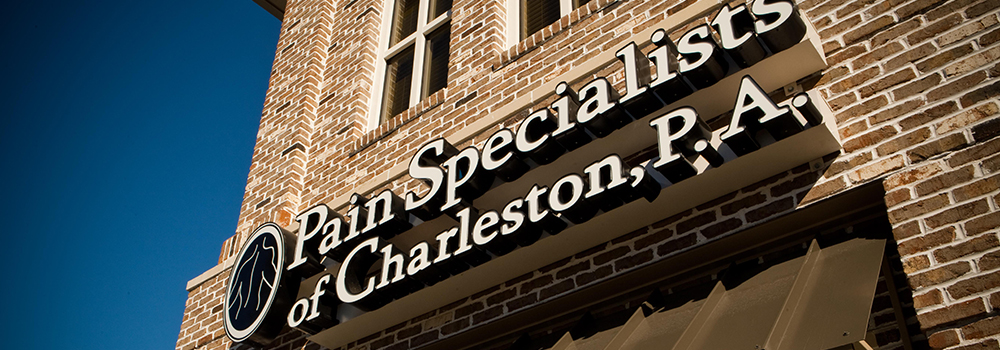Your day begins like any other – your eyes open to the sound of your alarm blaring the morning’s wake-up call. As you work to find the energy to prop yourself up and drink your first of several cups of coffee, an intense pain in your shoulder stops you in your tracks.
You clutch your shoulder, pain washing over you. As you try to raise your arm, it feels as though it is locked in place, and pain is now the new currency for flexibility and motion. Is this just a symptom of “waking up on the wrong side of the bed,” or could it be something worse?
A pinched nerve is the compression of nerves in a specific area of your body, causing tingling, numbness, and pain in the affected area.
How long does a pinched nerve last, and how do you seek treatment? Keep reading to find out!

What is a Pinched Nerve?
A pinched nerve is a result of too much pressure applied to a nerve, which can cause pain, numbness, or a tingling sensation in the affected area. Excess pressure is applied to a nerve by surrounding tissues or can be compressed due to acute injuries or changes to bone formation.
A pinched nerve can occur in various areas throughout the body and radiate outwards. For example, carpal tunnel syndrome occurs when nerves are compressed in the wrist, resulting in pain and numbness in the hands and fingers.
What Causes a Pinched Nerve in Shoulder Blade and Shoulder?
Nerve pain in your shoulder can have two root causes: damage to the brachial plexus or a pinched nerve in the neck.
The brachial plexus is a nerve network that carries signals from the spine down the arm. A direct shoulder injury, repetitive movements, and cysts may damage the brachial plexus and cause nerve compression in the shoulders.
However, shoulder pain might not originate from a pinched nerve in the shoulder itself. Instead, it could result from a pinched nerve in the neck. If swollen tissues put pressure on the nerves extending from the spinal column into the neck and shoulder, it can lead to pain or numbness in the shoulder.
Signs and Symptoms of a Pinched Nerve in Shoulder
The most common symptoms of a pinched nerve include pain, numbness, or discomfort in the affected and surrounding areas. However, a person may also experience other symptoms of nerve compression, including:
- Muscle weakness in the arm, hand, or shoulder
- Tingling or a “pins-and-needles” sensation
- Feeling as if the surrounding area where the nerve was compressed has “fallen asleep”
- Neck pain, especially when performing certain actions (i.e. turning the head from side to side)
- Limited mobility
If you are experiencing increased pain or discomfort from a pinched nerve in the shoulder, contact a pain management physician near you immediately.
How Do You Treat a Pinched Nerve?
If you are experiencing the effects of a pinched nerve, chances are you are experiencing increased pain. Most people suffering from a pinched nerve will see symptoms resolve without treatment in as little as a few days. However, if nerve pain persists for several weeks, it may be time to visit a clinic for pain management in Charleston, SC.
While nonsteroidal anti-inflammatory drugs (NSAIDs) like ibuprofen, may be utilized, our pain management clinic offers interventional treatment methods that don’t use habit-forming medications or surgery at the forefront of our practice.
To treat a pinched nerve in your shoulder, we may offer the following interventional pain management treatment approaches:
Physical Therapy
Our physical therapists will design an exercise regimen geared to help release the tension surrounding your nerve pain. The exercises will be aimed at strengthening and stretching the muscles to help relieve pressure on the nerve.
Massage
A pinched nerve is the result of tension and increased pressure on the nerve. Various massage techniques may help reduce overall physical pain, relieve tension, and relax the muscles in your body. However, massage is all about adding pressure to help find relief, so a deep-tissue massage may make symptoms worse.
Nerve Block
Depending on your needs and medical history, a nerve block may be issued to help release a pinched nerve. A nerve block is a low-level electrical stimulation to the area surrounding the pinched nerve that will help alleviate inflammation.
Release Nerve Tension with Pain Specialists of Charleston
Suffering from increased tension and stress in your life is never fun–especially when it ends up causing you increased pain and discomfort in your body.
At Pain Specialists of Charleston, our board-certified pain management physicians take a non-surgical, customized approach to your pain to help you find much-needed relief. Whether it be the effects of a pinched nerve or a herniated disk, we are here to help!
We’re open five days a week and accepting new patients – no referral needed!
Request Appointment | Meet Pain Doctors | Contact Us | Visit Us
Additional Helpful Articles:
What Should I Expect During My First Pain Management Appointment?
Interventional Pain Management: Everything You Need to Know
What Does a Pain Management Physician Do?
Can a Medical Massage Actually Relieve My Chronic Pains?
Why Do I Have Such a Stiff Neck When I Wake Up?
Get to Know Pain Management Physicians:
Our Services:
Diagnosis | Treatment | Interventional Pain Management | TRICARE | Wellness | Clinical Trials | Worker’s Compensation | Neurology | Imaging/ MRI
Published January 2025

